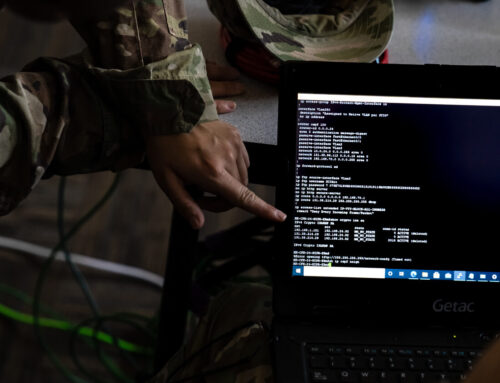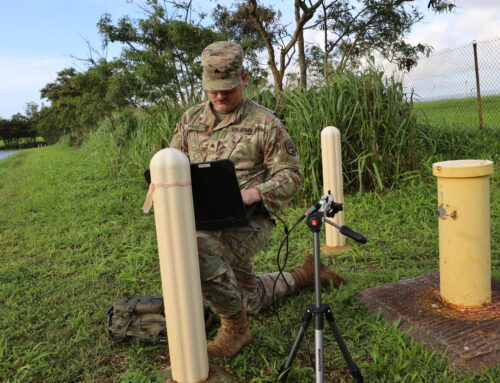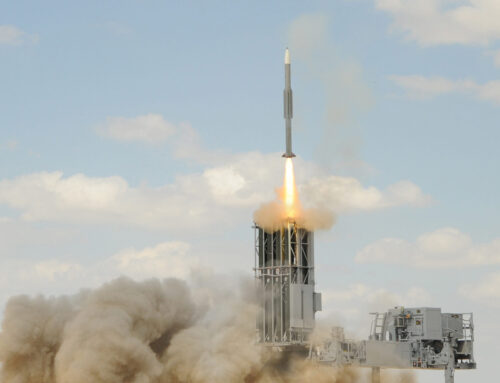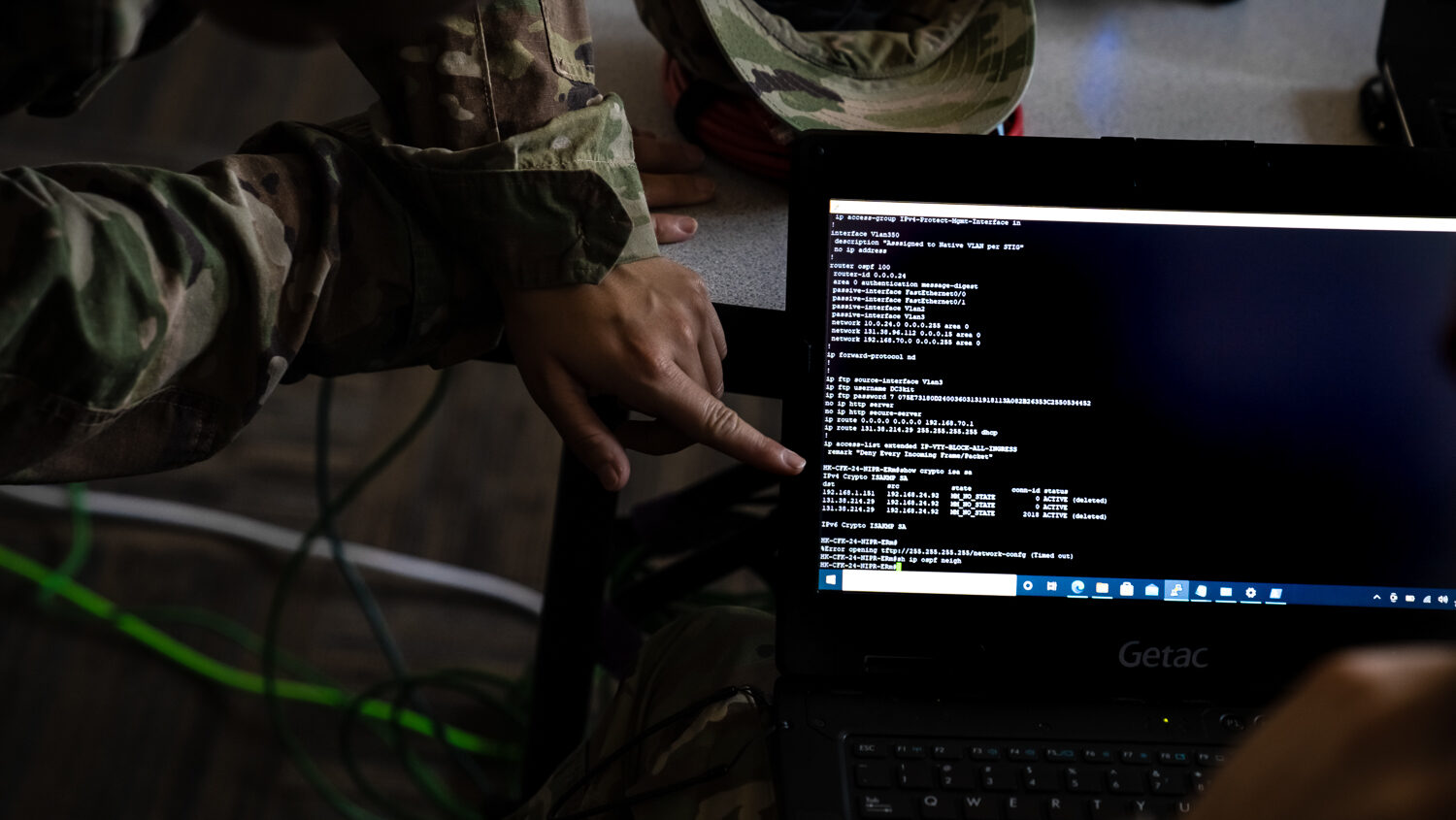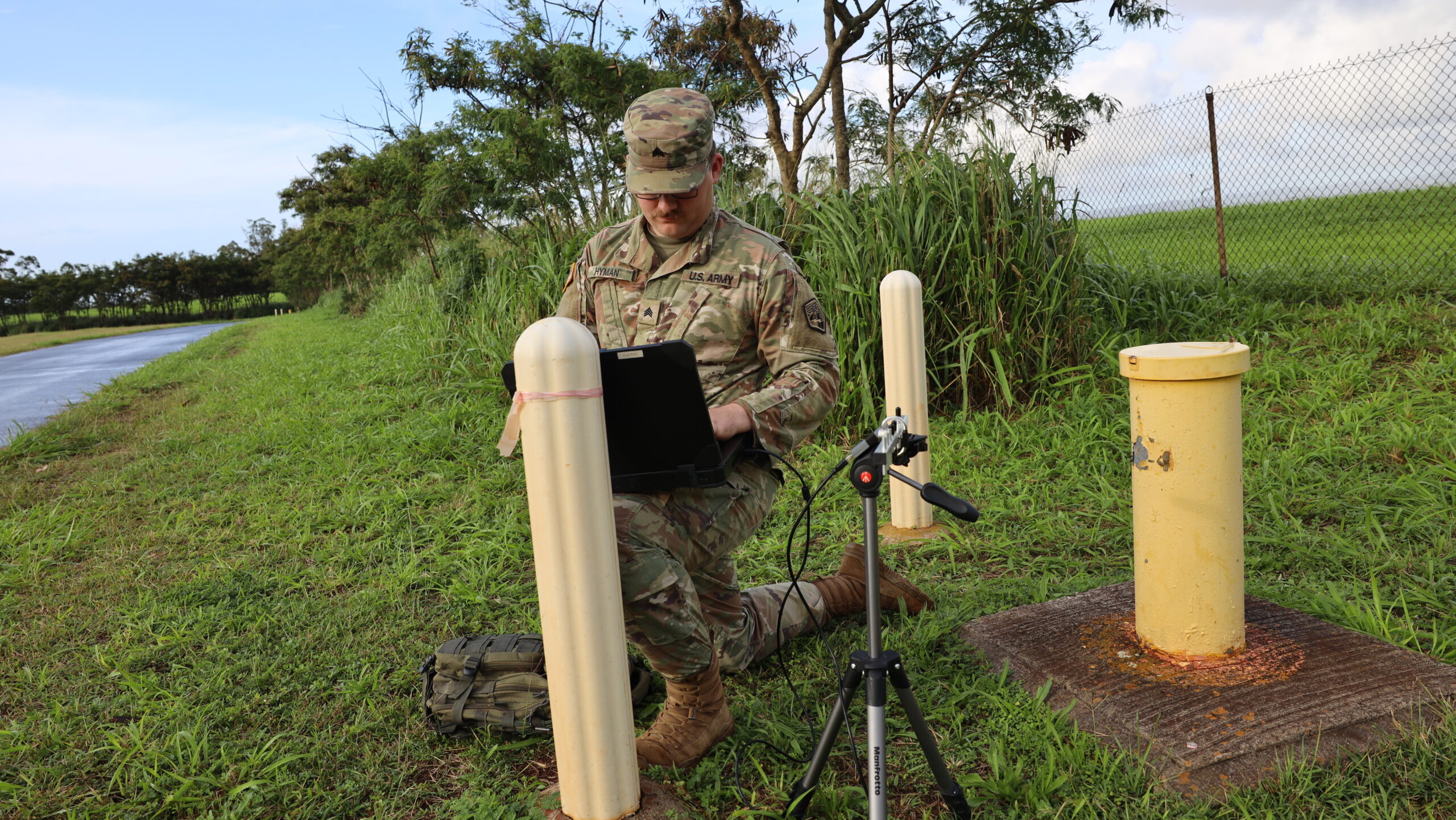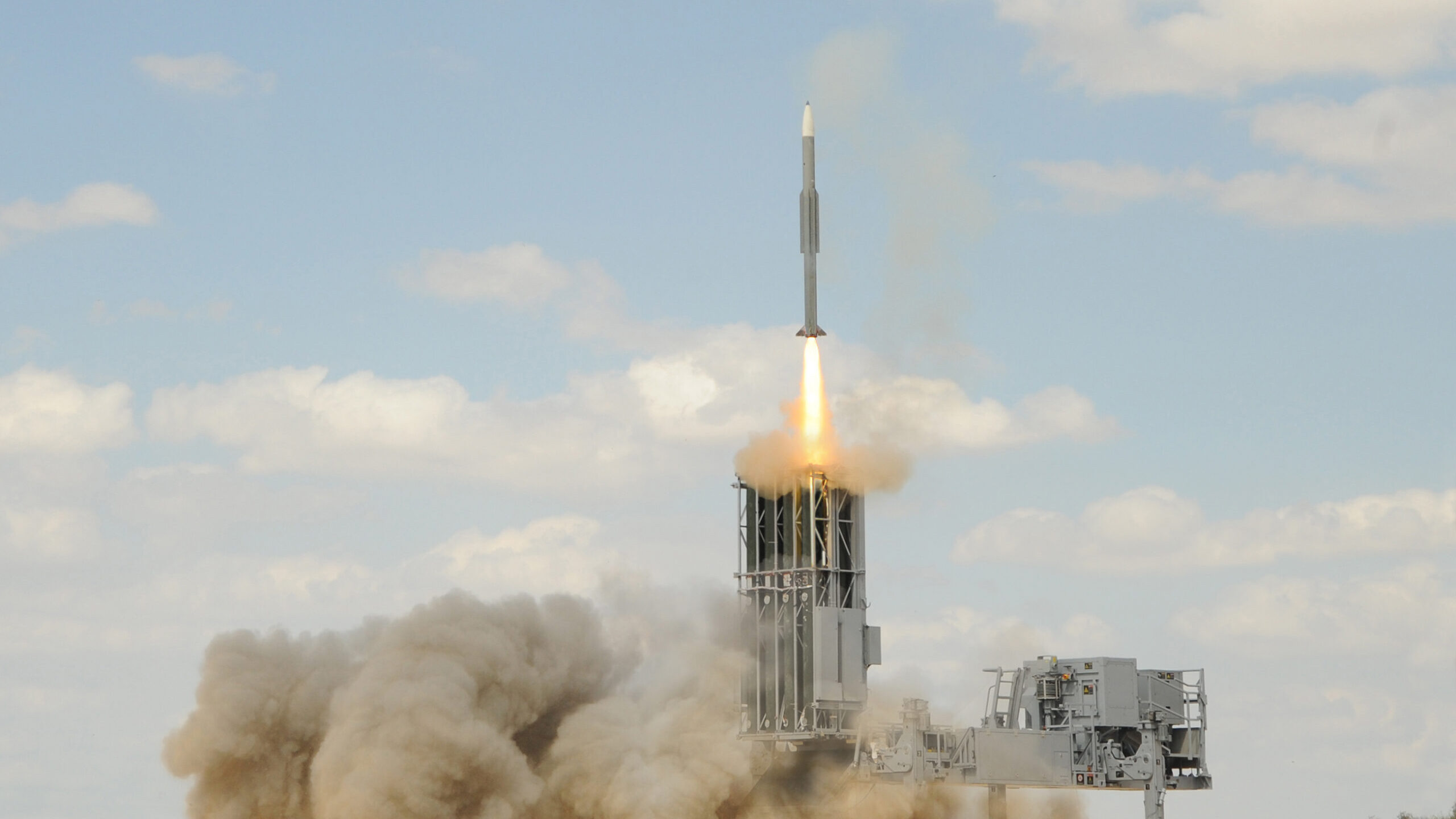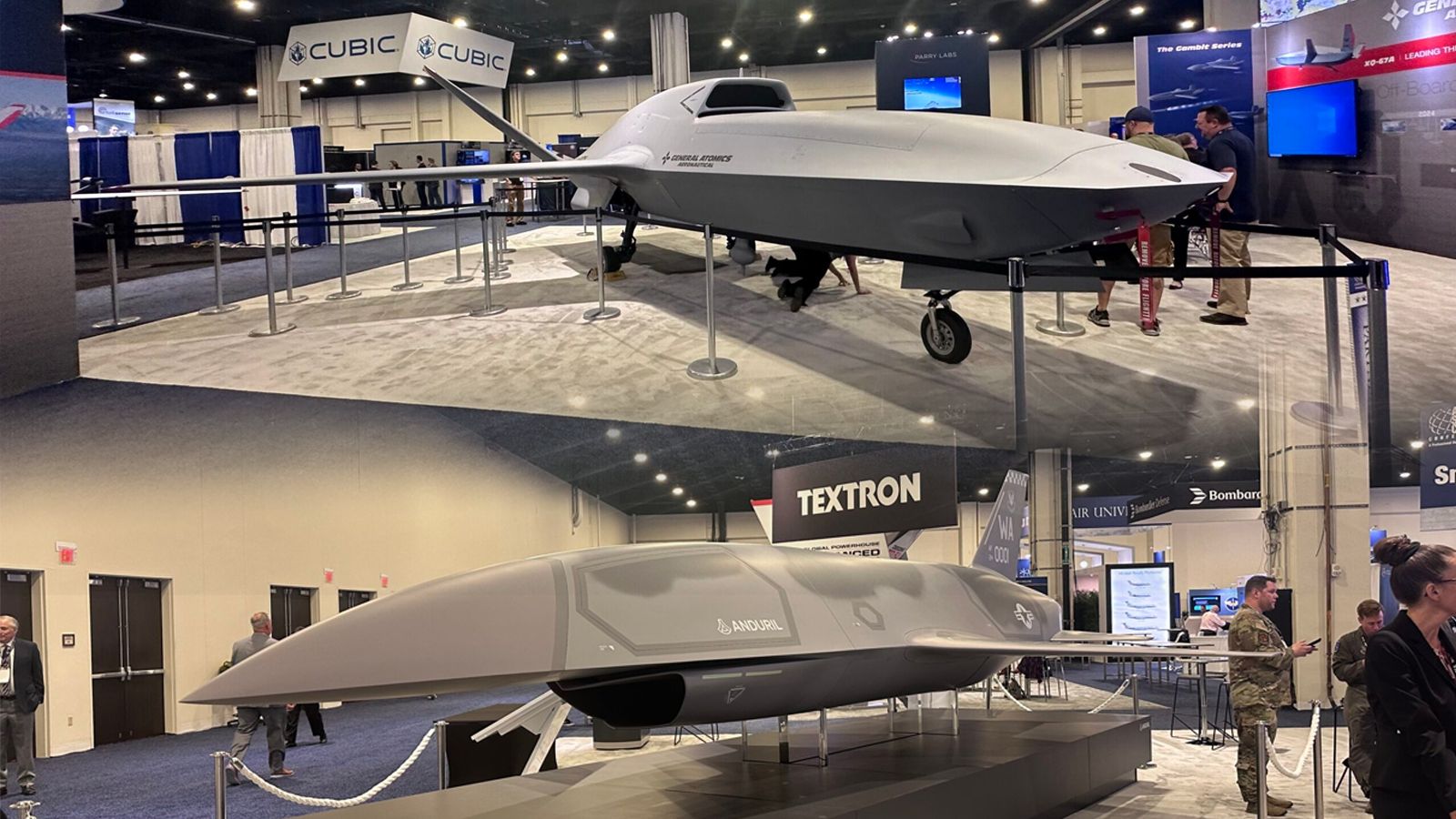A new model of the GCAP design is shown at the 2024 Farnborough Airshow. (BAE)
FARNBOROUGH 2024 — A new joint venture between BAE Systems, Mitsubishi Heavy Industries and Leonardo that will be responsible for the industrial side of the GCAP sixth-generation fighter program will likely be finalized in the next two to three months, an executive from Leonardo told Breaking Defense this week.
Lorenzo Mariani, co-general manager of the Italian firm, said the companies were meeting this week to hash out some of the details of the agreement, but said there was too much to work through in one go.
The goal of the new joint venture will be to act as an industrial counterpart to the GCAP International Government Organisation (GIGO), a trilateral government office set up to manage GCAP on behalf of the United Kingdom, Italy and Japan.
Last week, concerns about the future of GCAP appeared in the media, following comments from a UK official that did not ensure the fighter effort would be protected in the new Labour government’s Strategic Defense Review. However, Mariani was sanguine about the situation.
RELATED: GCAP partners showcase new concept for next-gen fighter jet based on ‘evolved design’
“I read the declarations, the detailed supporting elements at the [start] of the SDR, and I think I’m pretty convinced that GCAP will be, at the end, sustained,” he said. “I’m pretty optimistic on that, and in the meantime, our activity with the other two [primes], BAE Systems and MHI, is proceeding quickly. A lot of work, a lot of discussions.”
During the interview, Mariani also expressed his understanding that getting GCAP up and flying by 2035 was going to be difficult — though, he stressed, far from impossible.
“Today, everything is allowing us to be confident that there will be aircraft flying by the time. Nevertheless, it’s very challenging,” he said. “It’s challenging because the complexity is extremely high, because this is not only a platform, this is a system … the connectivity, data fusion, integrated communication and networking, cyber weapon, novel weapon system, direct energy. So there will be a number of features that are more part of the system than on the specific platform alone, that will make the program a very effective one, but also a very challenging one.”
Mariani noted that Italy and the UK, both partners in the Eurofighter Typhoon and F-35 Joint Strike Fighter programs, have a history of collaboration which has helped with the early days of GCAP. That history is lacking between Japan and Italy, which the Leonardo executive acknowledged has led to what he called “some unknowns, something that you don’t know and you have to face.”
He added, “I think the fact that all nations share the common objective of 2035 helps a lot to overcome the normal hurdles that affect cooperation. So yes, I would say there was some initial attrition, that is normal. Now, I think the teams are meeting, operating, and of course, we still hope to improve that.”




